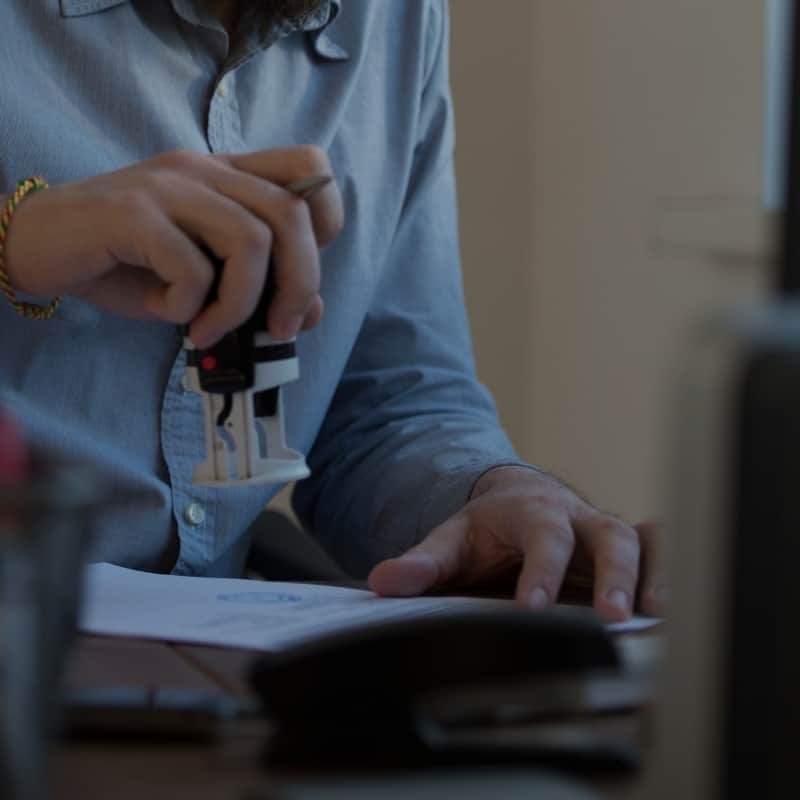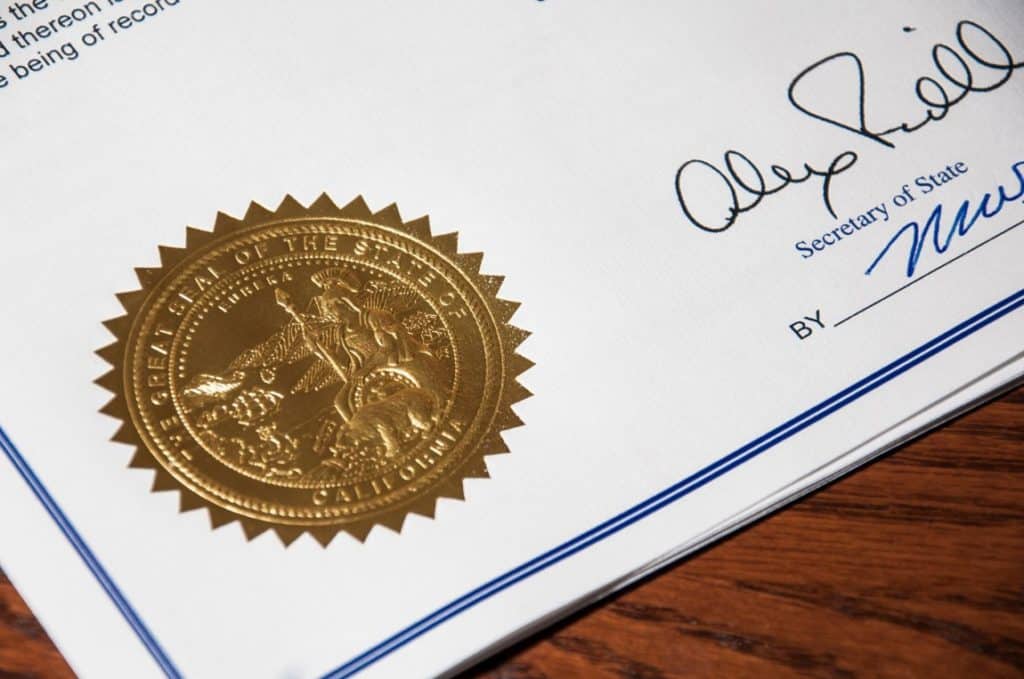
An apostille is a formal certification by a competent authority of the authenticity of the origin of a qualifying document. An apostille facilitates the acceptance of the qualifying document by a foreign authority.
For example, one might obtain a birth, marriage, or death certificate from a U.S. state and also obtain an apostille to satisfy a governmental entity outside the U.S. of the authenticity of the document.
An apostille may be produced on the authenticated document or may be attached to the authenticated document. The official text is comprised of ten standard items of information and is contained within a square stamp or form.
The identification of the competent authority begins by understanding the source of the document to be authenticated. Generally: (1) a document produced by an instrumentality of a U.S. state can be authenticated by that state’s Secretary of State or a Deputy/Assistant
Secretary of State; (2) a document produced by a U.S. federal court can be authenticated by the Clerk or a Deputy Clerk of that court; and (3) a document produced by an instrumentality of the U.S. federal government can be authenticated by the U.S. Department of State.

An apostille supports the authenticity of the signature and seal (if applicable) on a document but is not evidence of the content of the document; it does not add any official authority to a document, but simply authenticates the document’s origin.
Apostilles are only applied to “public documents.” Birth, marriage, and death certificates are public documents, as are judgments and divorce decrees, as well as entity organizational documents emanating from the register maintained by an appropriate filing office (e.g., in Minnesota, the Office of the Secretary of State). Academic diplomas and transcripts from public institutions are public documents. Academic diplomas and transcripts from private institutions are not public documents but can be supplemented with an official certification that is a public document, and the certification can be authenticated via an apostille.
Most, but not all, countries recognize the effect of apostilles, but it is advisable to check with the foreign authority to which you intend to transmit a document before incurring the burden of obtaining the apostille.
NOT INTENDED TO PROVIDE LEGAL, ACCOUNTING OR OTHER PROFESSIONAL ADVICE AND SHOULD NOT BE RELIED UPON AS SUCH.
